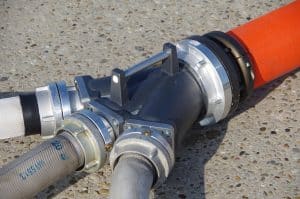Smart Highways Respond to Traffic in Real Time
Every day, millions of people around the world spend countless hours sitting in traffic, stuck in gridlock and feeling frustrated. But what if there was a way to avoid this daily headache? Well, there is. Smart highways, also known as intelligent transportation systems, are revolutionizing the way we travel by using cutting-edge technology to respond to traffic in real time. In this article, we’ll dive into how smart highways work, the benefits they provide, and the future of this game-changing innovation.
Understanding Smart Highways
First, let’s define what we mean by “smart highways.” At its core, a smart highway is a road that uses technology to improve traffic flow, enhance safety, and reduce congestion. These high-tech roadways utilize a variety of sensors, cameras, and other devices to collect and transmit real-time data to a central network.
The data collected includes information about traffic volume, speed, and weather conditions, and it is then used to make real-time adjustments to traffic patterns, signal timings, and lane openings. This allows for a more efficient flow of traffic, reducing the time spent sitting in cars and ultimately improving the driving experience for everyone on the road.
Real-Time Traffic Management
The most significant benefit of smart highways is their ability to respond to traffic in real time. By using connected sensors and devices, the system can monitor and analyze traffic patterns as they happen and make adjustments accordingly. This means that traffic lights can quickly adapt to changing traffic conditions, and lanes can be opened or closed to optimize the flow of vehicles.
Furthermore, smart highways can also communicate with vehicles equipped with advanced driver-assistance systems (ADAS). Imagine your car receiving real-time traffic updates and rerouting you to avoid accidents, construction, or heavy congestion. This not only saves you time but also helps reduce the overall volume of traffic on the road.
The Benefits of Smart Highways
The implementation of smart highways comes with a host of benefits, including improved safety, reduced travel time, and decreased environmental impact. As mentioned earlier, the real-time management of traffic can help prevent accidents and improve overall road safety. By reducing the time spent sitting in traffic, smart highways also have a positive impact on air quality, as vehicles spend less time idling and emitting harmful pollutants.
Moreover, smart highways can help reduce the stress and frustration associated with driving in heavy traffic. This can lead to a safer and more pleasant driving experience for all motorists. Additionally, the increased efficiency in traffic flow can also have a significant economic impact, reducing fuel consumption, and improving the delivery of goods and services.
The Future of Smart Highways
The potential for smart highways is vast, and we have only scratched the surface of what this technology can do. As more and more vehicles become connected, the amount of data available to smart highways will increase, allowing for even more precise and effective traffic management. Furthermore, advancements in artificial intelligence and machine learning are making it possible for these systems to improve and learn from their own data, continually optimizing traffic patterns.
Some countries, such as the Netherlands and Germany, have already started implementing smart highways on a large scale. In the United States, several states have also begun to invest in this technology, with California’s “Smart Corridor” and Utah’s “Smart Road” leading the way.
The Takeaway
Smart highways are the way of the future, and they are already transforming the way we travel. With real-time traffic management, improved safety, and reduced travel time, these high-tech roadways have a lot to offer. As technology continues to evolve, we can expect to see even more exciting developments in this field. Who knows, maybe someday we’ll be able to say goodbye to traffic jams for good.










